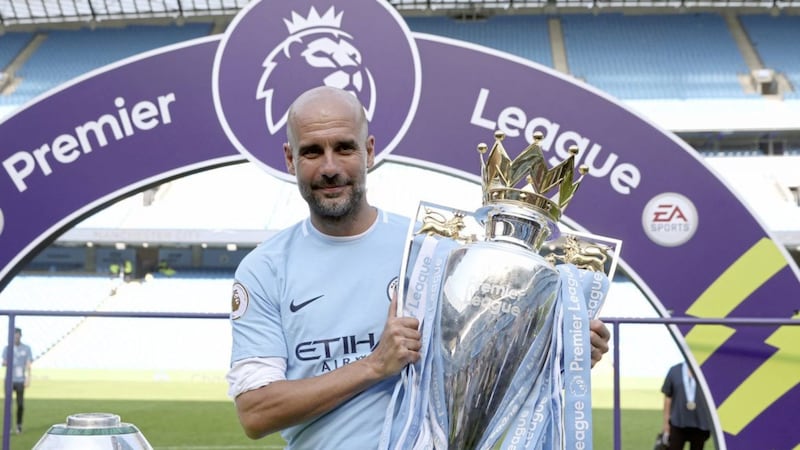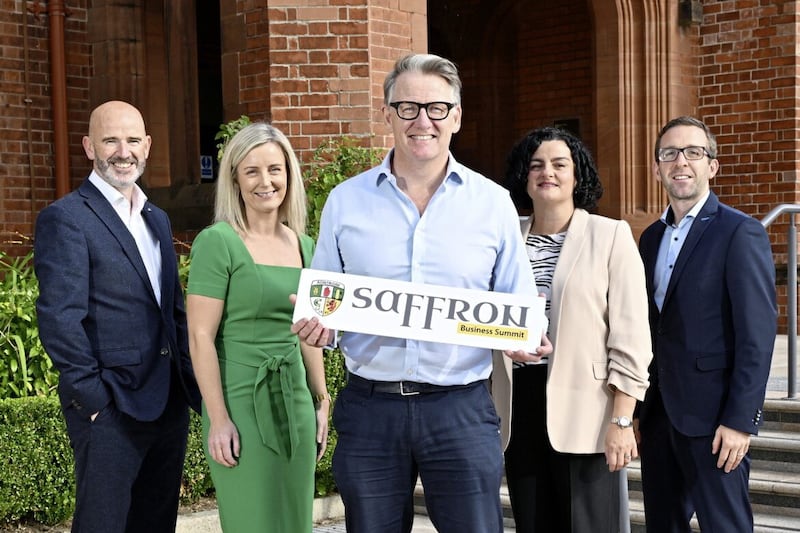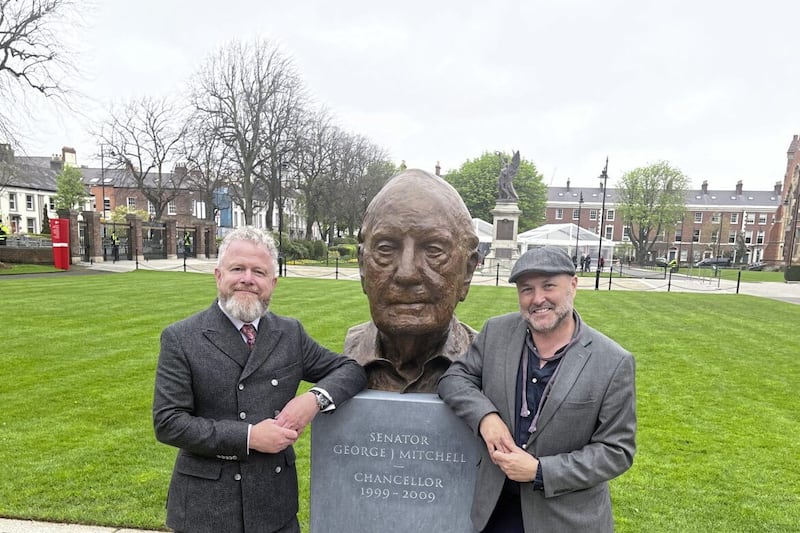I READ an interesting article last week about the soccer coach Pep Guardiola who has just managed Manchester City to another league title in England.
It was his ninth title in three countries in the last 12 seasons of coaching.
It’s very hard not to like and admire Guardiola. He’s smart, passionate, humble and unlike many in the soccer world, he doesn’t talk in cliches.
I watched the fly-on-the wall TV documentary about Man City, All or Nothing, a few years ago which follows Guardiola during the 2017-2018 winning season. It was fascinating, and you wouldn’t necessarily have to be interested in sport to get something out of it.
After winning four league titles in a row with his own club Barcelona in his first coaching job, Guardiola surprised the soccer world by taking a sabbatical year off in 2012.
He went to live in New York with his family and took some economics classes at Columbia University in Manhattan and hung out with the chess player Garry Kasparov and movie director Woody Allen.
As one of my favourite journalists Simon Kuper (look up his articles) said in the Financial Times last week, he ‘footballised’ everything he learned.
Guardiola’s friend, the economist Xavier Sala i Martin, compares him to the Spanish ‘fast-fashion’ retailer Zara, which can put out a new collection fortnightly.
“Pep is constant innovation”, Martin says. And that is what I mean about watching the documentary and not necessarily having to be interested in sport.
In the same way as Guardiola was thinking about how to improve his football management skills when attending economics classes, watching that documentary, or reading about Guardiola provides insight into business management, structure, motivation, leadership, teamwork etc. But it has reminded me about innovation and what it means.
I also read the obituary of the inventor chemist Spencer Silver at the weekend. In 1968, Silver failed to produce a super strong adhesive that he had been experimenting on for his employer, 3M. Instead, he had created one that stuck lightly to surfaces. He was sure that this new product could be used usefully for something, he just didn’t know what.
“It’s a solution waiting for a problem to solve,” Silver said. And then along came his 3M colleague Art Fry who thought the same about this amazing adhesive and used it one day to make his page marker stick on his hymn book ensuring the page wouldn’t rip when he wanted to use it to mark another page.
From then on, it was only a matter of time before 3M’s most famous product was created using Silver’s adhesive, the yellow 'Post-it’ note. I use Post-it notes nearly every day. 3M sells 50 billion of them every year.
The thing that struck me about Silver’s story though was that it actually took a few years for 3M to work out how to use his adhesive and even then, you could argue that Fry’s hymn book story really meant they had come across it by accident.
Sliver was known in 3M as 'Mr Persistent' as he had been running regular seminars inside the company about his adhesive for some time. Fry had attended one of the seminars and had been thinking about its use. The hymn book page marker was no accident. The culture of innovation inside 3M led him there.
And it’s no accident either that Guardiola’s culture of seeking new and different ways to footballise learning from outside of the world of soccer makes him one of the best, if not the best, manager there has ever been.
Locally then, a great innovator in a space not always known for innovation, banking, has just finished up after six years of excellent leadership.
Hands up, we have been working with Danske Bank through that whole period but even Kevin Kingston’s most hardened competitors would have to admit that he has done a superb and innovative job.
Kevin’s enlightened approach to banking and genuine embrace and integration of real society issues like diversity, equality and sustainability into the bank’s practices and externally then into society, have blazed a trail for others in big business here to follow.
A more innovative approach to customer relationships, mortgages, technology, start-ups and a willingness to work with emerging, alternative forms of finance for business when others might have considered these to be competition, have all placed Danske in a very strong, competitive position.
It is no accident that Kevin is leaving the leading and biggest bank here. It will be interesting to see what he does next, and it will be interesting to watch another innovator, Vicky Davies, who helped start the changes in Danske with Kevin and his predecessor, Gerry Mallon, as she becomes the first woman to lead Danske in its 200-year history here.
No doubt there is more innovation and good strategy to come as Vicky transitions into place as Danske Bank’s new CEO.
And sure all Pep Guardiola has to do is win the European Champions League this weekend to finish off another almost perfect season. Innovation does indeed pay dividends.
:: Paul McErlean (paul@mcepublicrelations.com) is managing director and founder of MCE Public Relations
:: Next week: Brendan Mulgrew







